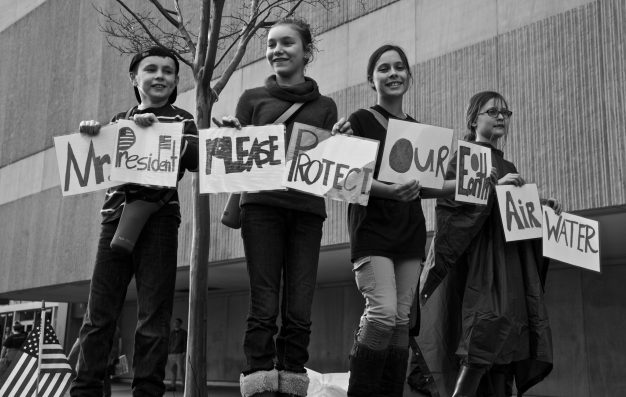
Young people: what is MY government doing to combat climate change?
A global children’s charity says the vast majority of young people it surveyed about climate change ‘know very little’ about what their own government is doing to combat the issue.
Plan International asked more than 1,800 youths and adolescents from 37 countries about their respective country’s climate policies, and what they found had ‘exposed significant shortfalls’ in how governments are educating young people about green issues.
Eight out of 10 (82 per cent) told the charity that they ‘know nothing, very little or only a bit’, while nearly half (44 per cent) had no idea what the ParisAgreement – the UN’s landmark 2015 treaty – is about.
This alarming revelation about perceived government inaction goes against how pro-active many young people are. Nearly all of those interviewed by Plan International – all of whom were aged between 15 and 24 – said they were ‘concerned’ about the climate emergency, with three quarters (74 per cent) ‘very or extremely worried’.
According to the survey, girls and young women are likely to worry more about climate change, with 99 per cent saying they are concerned about it, compared to 95 per cent of boys and young men. Almost nine in ten (86 per cent) young people – whose views are published in the report Reimagining climate education and youth leadership – have taken action because of their fears.
The most common form of action was educating peers or family about climate issues (64 per cent), signing or sharing a petition (49 per cent) and posting about climate change on social media (45 per cent). Just under one in five (18 per cent) had joined a protest or strike.
‘Teaching is not relevant to their daily lives’
Fewer than one in ten (six per cent) have participated in climate policy processes such as the COP UN Climate Change Conference. The UK is hosting this year’s COP26 summit.
And while most say teaching at school has focussed on the impacts of climate change (90 per cent) and individual actions such as recycling, saving energy and changing diets (73 per cent), they feel that this is rarely relevant to their daily lives.
“Very little was taught about climate change at my school, it was not in depth and it was just mentioned,” one teenage girl from Australia told the survey. “We had to educate ourselves if we were curious enough.”
A teenager from the UK, said: “Climate change in school was ‘done to death’! But not in a way that was relevant or engaging – just that it was happening – more of a tick box than an actual education on the issues and what to do.”
Jessica Cooke, Climate Change Policy and Advocacy Adviser at Plan International, said: “The climate crisis is without a doubt the defining issue of our time, and it is young people who will bear the brunt of its impacts and live with them the longest. As in most emergencies, girls and young women are likely to suffer the most devastating consequences – this year alone, it is estimated that climate change will prevent at least four million girls from completing their education.”
Young people have told us clearly that they are fearful for their future and want to shape the policies and decisions that will define them
“Young people have told us clearly that they are fearful for their future and want to shape the policies and decisions that will define them, but don’t feel informed or empowered enough to do so. This exposes significant shortfalls in how governments are teaching children and girls about the environmental crisis we face.
Child in the City has previously reported how the UN Committee on the Rights of the Child had commended young people, such as Greta Thunberg, for campaigning on environmental issues.
“This needs to change – governments worldwide must give young people, including and especially girls in their diversity, a greater say in how to tackle the climate emergency. This should start with better education in schools, giving pupils the confidence and skills to engage with its social and political dimensions, and support in advancing climate and gender justice.”
Click here for more on the UN Climate Change Conference UK 2021




